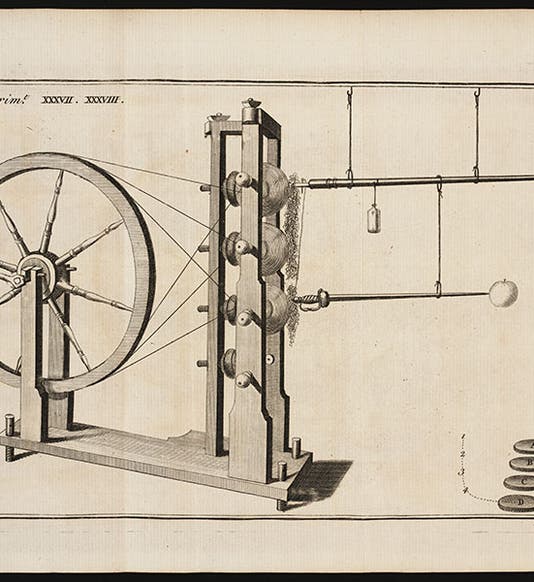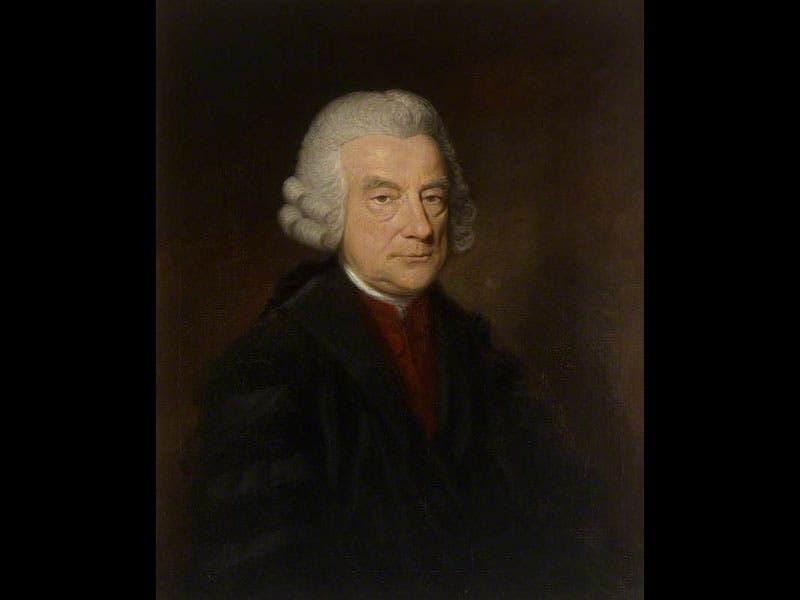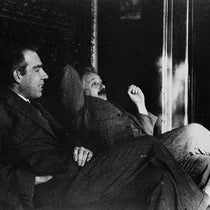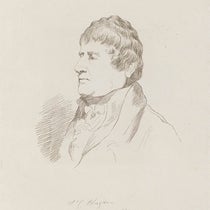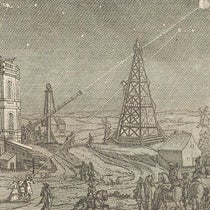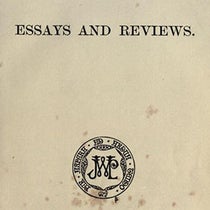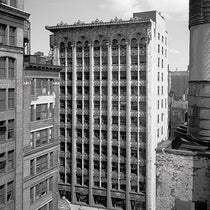Scientist of the Day - William Watson
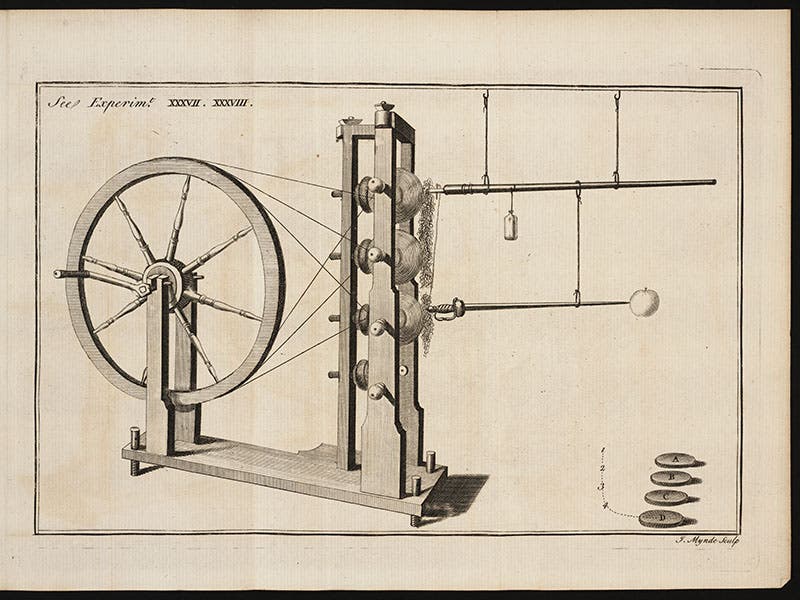
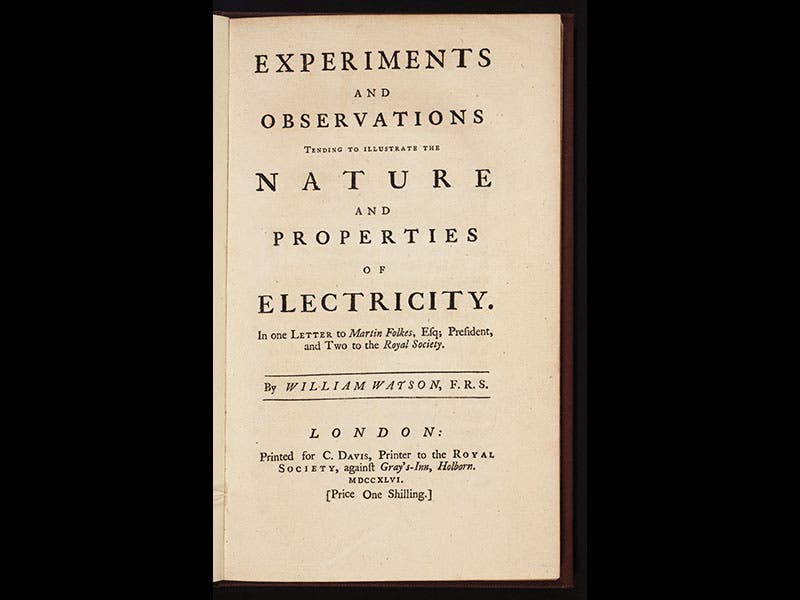
William Watson, an English pioneer of electrical studies, was born Apr. 3, 1715. Watson introduced the Leyden jar, which had been discovered in 1745, to the Royal Society of London, and he used it to do a variety of experiments, including conducting electricity across the Thames on a wire. It was Watson who first realized that electricity can travel only through a completed circuit, and that the earth can be a part of that circuit. He presented a number of papers on electricity to the Royal Society from 1745 to 1748, and many of these were then published in pamphlet form. The History of Science Collection has two of these pamphlets bound separately, and a third volume, a sammelband, containing nine electrical treatises published between 1745 and 1750, including three of Watson's. We also have all of Watson's original papers in the Philosophical Transactions of the Royal Society. We show above the title page of Watson’s Experiments and observations tending to illustrate the nature and properties of electricity (1746; second image), and a folding plate from this volume, depicting a static electricity generator (first image). We have the first printing of this pamphlet (1745) in the sammelband, but the plate in the second printing is larger and nicer.
Watson's writings played a major role in launching Benjamin Franklin's electrical studies, and Watson later recognized Franklin as the supreme electrical experimenter of his era. There is a fine oil portrait of Watson, by Lemuel Francis Abbott, in the collection of the Royal Society of London (third image).
Dr. William B. Ashworth, Jr., Consultant for the History of Science, Linda Hall Library and Associate Professor, Department of History, University of Missouri-Kansas City. Comments or corrections are welcome; please direct to ashworthw@umkc.edu.

